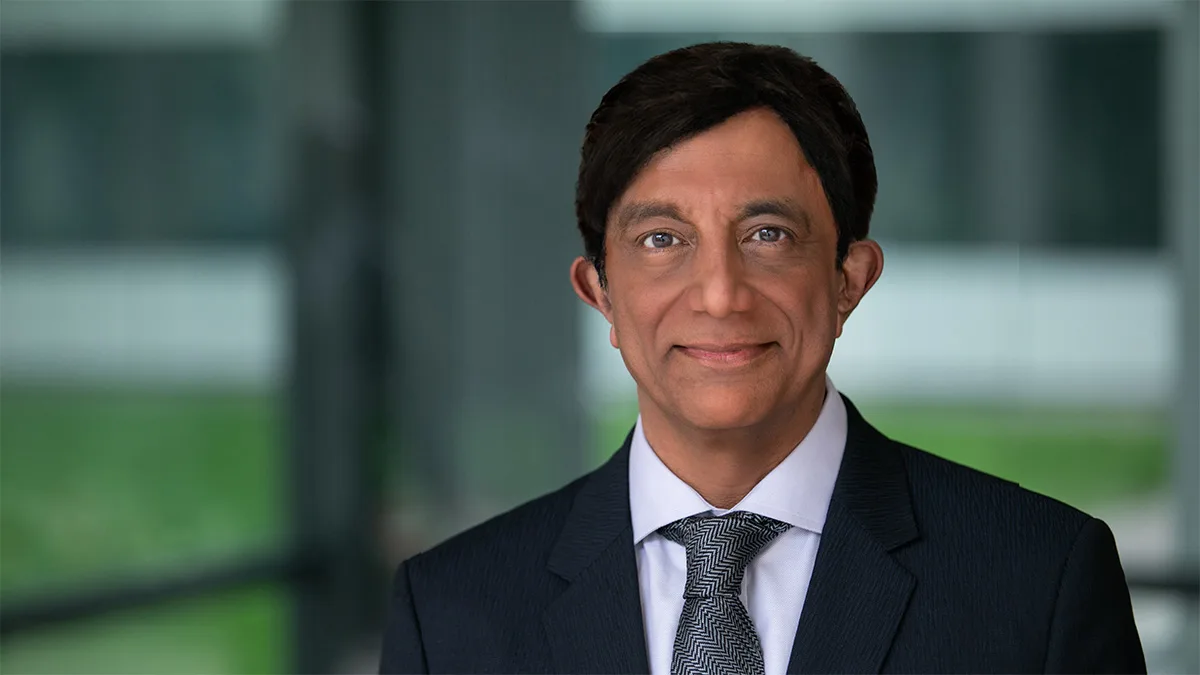
Overview
World Mental Health Day 2024, October 10, focuses on "It is Time to Prioritize Mental Health in the Workplace."
Global campaign to prioritize, protect and promote initiatives
World Mental Health Day 2024, October 10, focuses on "It is Time to Prioritize Mental Health in the Workplace."
The campaign, developed by the World Federation for Mental Health (WFMH), is dedicated to advocating for the prioritization, protection and promotion of mental health within the workplace.
Cure spoke about the importance of World Mental Health Day with Husseini Manji, MD, FRCPC, a globally recognized expert in psychiatry and neuroscience. He also is Co-Chair of the UK Government’s Mental Health Mission, where he leads efforts to drive innovation and address unmet needs in mental health. Manji, who also holds academic positions at Oxford University, Duke University and Yale University, is the former Global Head of Neuroscience and Science for Minds at Johnson & Johnson (JNJ).
Manji pioneered research at JNJ in treatment-resistant depression. His efforts resulted in the approval of esketamine, an NMDA receptor agonist that uses the first new mechanism of action in decades to treat patients with major depressive disorder. His work continues to shape the future of psychiatric care, focusing on precision medicine and novel therapeutic mechanisms to improve patient outcomes globally.
Cure: What is the significance of World Mental Health Day?
Manji: World Mental Health Day helps to mobilize international efforts in education, advocacy and awareness in support of mental wellness. It’s important for many reasons, but foremost in opening conversations that help reduce stigma and promote accessible care for everyone, no matter who or where they are in the world.
Cure: How do you describe mental health?
Manji: There is no health without mental health. It’s physical as much as emotional, and it touches every part of our lives—how we think, feel, and interact with others.
My focus is primarily in addressing mental illness in new and innovative ways, but mental health goes beyond absence of disease. It’s about achieving emotional, psychologic and social wellbeing, and that requires 360-degree approaches, of which new therapeutics and interventions are one part.
Cure: What role does the workplace have in mental well-being?
Manji: Given that so many people spend a significant portion of their adult lives at work, and that a significant number of people are impacted by conditions like depression and anxiety, employers have tremendous opportunity to play a role in advancing good mental health.
Creating an environment where employees feel psychologically safe, reducing stigma around mental health conditions at work, and offering access to resources like therapy and support groups can make a big difference.
Cure: How can we reduce the stigma around mental illness?
Manji: Reducing stigma begins with education that helps people understand that mental illness is a medical condition, not a personal flaw, and that mental health conditions are widespread. Sharing real stories of recovery is also key to changing perspectives.
But no one institution can do it alone... to reduce stigma we all need to pull together to promote dialog and change beliefs. Private and public sector institutions, individuals affected by mental health conditions, and families all have a role to play.
Cure: What are some recent milestones in mental health?
Manji: The introduction in 2019 of esketamine, a treatment for patients with treatment-resistant depression, shifted paradigms around how we think about and treat mental health conditions. I’m proud to have spearheaded its development.
And even more recently, the approval of Cobenfy, a new drug for patients with schizophrenia, represents an extraordinary breakthrough in treating a condition for which there are few good options for patients.
I’m intrigued by the potential for GLP-1 agonists, currently being used to address weight loss and diabetes, to treat addiction.
But one of the most promising developments in the field is the growing focus on precision neuropsychiatry, which maximizes patient outcomes by recognizing the biological and genetic differences within a disease. In the future, we will move away from one-size-fits-all approaches to mental healthcare and instead tailor treatment strategies to individual needs and risk factors.
Cure: What’s in the mental health pipeline with great potential?
Manji: Like in other areas of medicine, we are moving towards precision approaches. Johnson & Johnson has Aticaprant in Phase 3 trials for depression with anhedonia, and Seltorexant for depression marked by hyperarousal, including insomnia. Additionally, Alto Neuroscience is advancing Alto-100 for depression in patients with biomarkers of impaired hippocampal plasticity. Finally, I think we’ll see immune-targeting agents emerge for both neurodegenerative and neuropsychiatric disorders.
World Mental Health Day 2024, through events and digital campaigns, urges taking action to support mental health in the workplace and beyond. The day is also a reminder that mental health is not just a concern of individual people but a critical component of overall workplace well-being. To learn more, visit WFMH.








